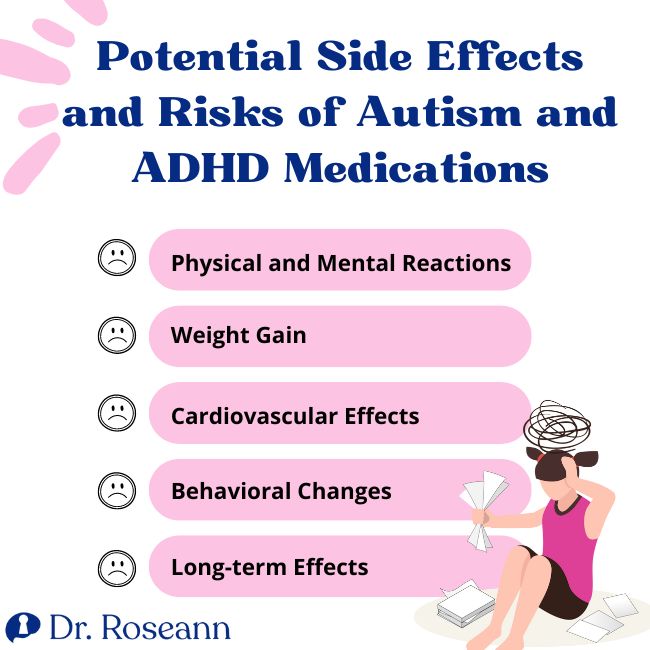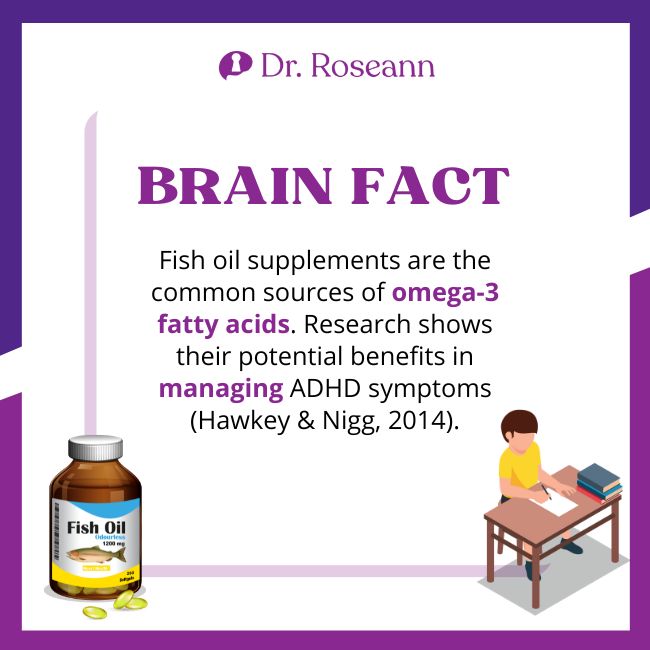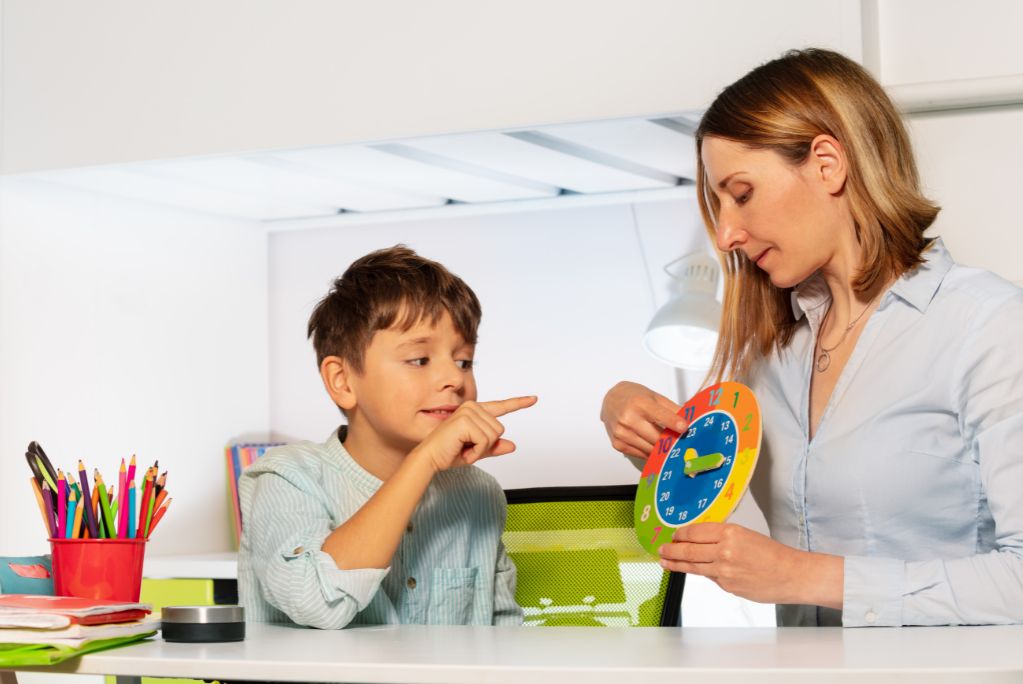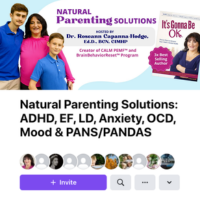Autism Spectrum Disorder, or ASD, and Attention Deficit Hyperactivity Disorder, or ADHD, are hard for both the parent and child. Because the challenges can be overwhelming, parents constantly search for practical solutions. One of the most debated topics is holistic versus medication treatments. So, here's the million-dollar question: Should you treat the mind with autism and ADHD medication?
Let's start by understanding these mental health or neurodevelopmental conditions. Parents of autistic children might feel that their kids operate on a secret code they can't decipher. Trying to crack that code feels like searching for a needle in a haystack. Difficulties in social communication and interaction, repetitive behaviors, and restricted interests characterize Autism Spectrum Disorder.
On the other hand, ADHD is not much different. It's a trio of inattention, hyperactivity, and impulsivity that can make life feel like a never-ending whirlwind. And just when you think you've got it all figured out, it throws you another curveball.
Common Symptoms of Autism Spectrum Disorder
- Difficulties in social communication and interaction
- Restricted and repetitive behaviors
- Challenges in interpreting social cues
- Difficulty making eye contact
- Unusual attachment to routines or objects
- Sensory sensitivities or aversions
- Problem with changes in routine
- Limited interests or intense focus on specific topics
- Difficulty with imaginative play or pretend scenarios
Common Symptoms of ADHD
- Inattention and difficulty sustaining focus
- Hyperactivity and restlessness
- Impulsivity and acting without thinking
- Difficulty following instructions or completing tasks
- Forgetfulness and disorganization
- Difficulty staying seated or engaging in quiet activities
- Talkativeness and interrupting others
- Fidgeting or squirming
- Trouble waiting for turns
But having an autistic or ADHD child is not all doom and gloom. With the right strategies and patience, you can find ways to manage their behavior and harness that magnificent energy. That's my experience with Ivan.
Ivan had a jolly soul but struggled with both mental health conditions. His parents took him to various doctors and specialists who prescribed a pharmacological treatment to manage his ADHD and autism symptoms.
At first, the psychiatric medications seemed to help Ivan concentrate and control his impulses. However, over time, he started experiencing unwanted side effects such as drowsiness, loss of appetite, and mood swings. Ivan's parents were worried about the long-term impact of these medications on their son's health and quality of life.
Navigating Autism and ADHD Medication
Medication is like a double-edged sword that can hold promise and caution. Without any doubt, autism and ADHD medication can significantly affect a child's quality of life.
In the realm of ADHD, stimulant medications take center stage. Methylphenidate and amphetamine-based drugs have been the standard treatment for ADHD treatment. They increase the brain's dopamine levels to improve focus, reduce impulsivity, and enhance self-control.
When using ADHD medication, finding the correct dosage with the guidance of a health professional is essential. Remember that each child is unique, and what works for one may not work for another. It's like finding the perfect key to unlock the door to their attention and concentration.
But for children with ASD, the medication landscape is more complex. There is no specific medication for treating the core symptoms of autism. Most medicines prescribed merely target particular challenges that often coexist with the condition, such as anxiety disorders or oppositional defiant disorder.
Selective serotonin reuptake inhibitors, or SSRIs, are commonly prescribed to address anxiety and mood disorders in children with autism. They help regulate serotonin levels in the brain, potentially alleviating anxiety and improving overall well-being. However, it's essential to recognize that medication is not a one-size-fits-all solution. It's like finding the missing puzzle piece in a sea of complexities.
When considering medication, weighing the potential benefits against the possible adverse effects is crucial. Adverse effects can vary depending on the medication and the child. Stimulant medications for ADHD, for example, may cause appetite suppression, sleep disturbances, or even mood changes in young children.
Potential Side Effects and Risks of Autism and ADHD Medications

When using medications for ASD and ADHD, knowing the potential side effects and risks is necessary. While medications can offer significant benefits, parents should also consider the potential drawbacks and make informed decisions. Let's take a closer look at some of the possible side effects and risks associated with these medications:
1. Physical and Mental Reactions
Medications used for ASD and ADHD, such as psychotropic medications, can carry the risk of adverse effects. These may include changes in appetite, sleep disturbances, mood fluctuations, or gastrointestinal issues. Monitoring these effects closely and communicating concerns with the child's doctor or psychiatrist is mandatory.
2. Weight Gain
Some medications, particularly antipsychotic medications, may increase the likelihood of weight gain in individuals with ASD or ADHD. Regular monitoring of weight and nutritional habits is essential to address any potential concerns and maintain overall health.
3. Cardiovascular Effects
Stimulant medications, commonly used for ADHD, can have cardiovascular effects, like increased heart rate and blood pressure. Checking vital signs should be done in individuals with pre-existing cardiovascular conditions.
4. Behavioral Changes
In some cases, medications may cause changes in behavior or mood. It's important to stay vigilant and report any significant shifts to your child's doctor. Adjustments to medication dosage or alternative treatment approaches may be needed.
5. Long-term Effects
The long-term effects of medication use for ASD and ADHD are still being studied. While research has shown short-term benefits, it's essential to continue monitoring and evaluating the results over time (Charach & Fernandez, 2013). Long-term studies and systematic reviews help us better understand the potential benefits and risks.
Ivan's parents became aware of all these risks. They were determined to find a solution to alleviate their child's challenges without adverse side effects. So, Ivan's parents began researching alternative treatments for ADHD, and their search led them to me.
His parents soon understood how ADHD and autism often involve imbalances in brain chemistry and neurotransmitters. Then they learned the importance of addressing these imbalances naturally. They religiously followed Ivan's personalized treatment plan focused on therapy, diet, exercise, and behavioral interventions.
The Importance of Holistic Approaches to Treatment
When addressing autism and ADHD, a holistic approach to treatment is paramount. A holistic approach recognizes the multifaceted nature of these conditions and acknowledges that effective treatment extends beyond medication alone.
Holistic treatments encompass various interventions, including behavioral therapy, educational support, lifestyle modifications, and alternative therapies. Holistic care addresses multiple aspects of a child's life. It promotes overall well-being and enhances the effectiveness of treatment.
A holistic approach recognizes that every person with ASD or ADHD has unique needs and challenges. It prioritizes individualized care by considering age, co-occurring conditions, symptom severity, and comorbidities like anxiety or mood disorders. This tailored approach helps optimize treatment outcomes.
Behavioral therapies play a pivotal role in holistic treatment. These evidence-based interventions focus on improving social skills, managing repetitive behaviors, enhancing communication, and addressing behavior. Equipping individuals with practical strategies empowers them to navigate daily challenges effectively.
This method also recognizes the essential role of families in the treatment process. Parent training programs and support groups provide families with knowledge, skills, and emotional support. Engaging parents and caregivers as active participants in their child's treatment fosters a supportive and nurturing environment.
Alternative therapies, such as neurofeedback, PEMF, magnesium supplementation, and sensory interventions, can supplement traditional treatments and provide additional benefits. These approaches acknowledge the sensory issues often experienced by individuals with ASD or ADHD. They aim to improve self-regulation, attention, and overall well-being.
Additionally, it encourages collaboration between healthcare providers, educators, and parents. Doing this helps create Individualized Education Plans or IEPs that address academic challenges and maximize learning opportunities. Focusing on academic performance supports long-term success.
With that said, holistic approaches emphasize sustainable, long-term strategies rather than quick fixes. They seek to equip individuals with the skills and tools necessary for independent functioning and a higher quality of life. Its use extends beyond childhood into adolescence and adulthood.
Natural Solutions for Autism and ADHD Symptoms
When exploring treatment options for Autism and ADHD, there is no room for trial and error. Parents must also consider natural approaches that complement traditional therapies. These natural solutions, backed by research studies and clinical care, can offer additional benefits and support. Here are some natural treatment options to explore:
1. Neurofeedback
Neurofeedback is a non-invasive technique that aims to regulate brain activity. It uses real-time monitoring to give individuals visual or auditory feedback about their brainwave patterns. Research studies suggest neurofeedback can help improve attention and self-regulation while reducing ADHD symptoms (Van Doren et al., 2018).
2. PEMF (Pulsed Electromagnetic Field) Therapy
PEMF therapy involves using electromagnetic fields to stimulate brain activity and promote balance within the body. It has shown promise in improving focus and attention and reducing hyperactivity in children with ADHD.
3. Magnesium Supplements
Magnesium is essential in numerous bodily functions, including brain health and neurotransmitter regulation. Some studies have shown the potential benefit of magnesium supplements in reducing hyperactivity. It also improves the attention of children and teens with ADHD (Starobrat-Hermelin & Kozielec, 1997).
4. Omega-3 Fatty Acids

Fish oil supplements are the common sources of omega-3 fatty acids. Research shows their potential benefits in managing ADHD symptoms (Hawkey & Nigg, 2014). These fatty acids may improve attention and cognitive performance.
5. Mindfulness and Meditation
Mindfulness practices and meditation techniques can help individuals with ASD and ADHD improve self-awareness, focus, and emotional regulation. These practices promote relaxation, reduce anxiety, and enhance overall well-being.
6. Dietary Modifications
Certain dietary modifications may benefit individuals with ASD and ADHD. Elimination diets that exclude potential food allergens, such as gluten or dairy, have been explored as a possible intervention. While the evidence is limited, some individuals may experience improvements in behavior and attention by avoiding specific dietary triggers.
7. Exercise and Physical Activity
Regular exercise has been shown to impact individuals with ASD and ADHD positively. Physical activity helps release excess energy, improves mood, promotes better sleep, and enhances overall cognitive functioning.
8. Herbal Supplements
Some herbal supplements, such as Ginkgo biloba or Bacopa Monnieri, have been studied for their potential cognitive benefits. However, consulting a healthcare professional before starting herbal supplements is crucial, as they may interact with other medications.
9. Parent Training and Support
Providing parents with training and support is vital to natural treatment solutions. Parent training programs offer strategies and techniques to manage behavior, improve communication, and create a supportive environment at home.
10. Sensory-Based Interventions
Sensory issues are common among individuals with ASD and ADHD. Sensory-based interventions can help individuals regulate their sensory experiences and improve attention and self-regulation.
Natural solutions should be used with appropriate medical guidance and comprehensive care. It's necessary to talk to a healthcare professional to determine the best approach for your kid's unique needs. A child psychiatrist or autism specialist can help.
Integrating these natural solutions into a holistic treatment plan could help children with ASD and ADHD receive comprehensive care. It will help address their diverse needs and promotes their overall well-being.
As Ivan embraced natural solutions for his mental health conditions, he noticed positive changes in his daily life. His attention span improved, and he became more organized. He found it easier to complete his school assignments and converse with others.
Ivan's newfound confidence and success did not go unnoticed. His teachers and classmates began to appreciate his unique abilities and talents. They realized that Ivan's ADHD and autism did not define him entirely but were merely parts of his vibrant personality.
Our BrainBehaviorResetTM Program offers a comprehensive and effective solution that empowers children like Ivan to unlock their full potential. Help your kid redefine their possibilities and thrive in a world celebrating their unique strengths.
Parent Action Steps
✅ Take this quiz to find out if your child has ADHD
✅ Research neurofeedback as a potential treatment option for ADHD and autism.
✅ Explore PEMF therapy for improved focus and attention.
✅ Consider magnesium supplements after consulting with a healthcare professional.
✅ Incorporate omega-3 fatty acid supplements for cognitive enhancement.
✅ Introduce mindfulness and meditation practices for self-awareness and emotional regulation.
✅ Make dietary modifications.
✅ Encourage regular exercise and physical activity.
✅ Educate yourself on herbal supplements, seeking professional advice.
✅ Attend parent training programs for effective strategies.
✅ Explore sensory-based interventions and tools for self-regulation.
Citations
Charach, A., & Fernandez, R. (2013). Enhancing ADHD Medication Adherence: Challenges and Opportunities. Current Psychiatry Reports, 15(7). https://doi.org/10.1007/s11920-013-0371-6
Hawkey, E., & Nigg, J. T. (2014). Omega−3 fatty acid and ADHD: Blood level analysis and meta-analytic extension of supplementation trials. Clinical Psychology Review, 34(6), 496–505. https://doi.org/10.1016/j.cpr.2014.05.005
Starobrat-Hermelin, B., & Kozielec, T. (1997). The effects of magnesium physiological supplementation on hyperactivity in children with attention deficit hyperactivity disorder (ADHD). Positive response to magnesium oral loading test. Magnesium Research, 10(2), 149–156. https://europepmc.org/article/med/9368236
Van Doren, J., Arns, M., Heinrich, H., Vollebregt, M. A., Strehl, U., & K. Loo, S. (2018). Sustained effects of neurofeedback in ADHD: a systematic review and meta-analysis. European Child & Adolescent Psychiatry, 28(3), 293–305. https://doi.org/10.1007/s00787-018-1121-4
Always remember… “Calm Brain, Happy Family™”
Are you looking for SOLUTIONS for your struggling child or teen?
Dr. Roseann and her team are all about solutions, so you are in the right place!
There are 3 ways to work with Dr. Roseann:
You can get her books for parents and professionals, including: It’s Gonna Be OK™: Proven Ways to Improve Your Child’s Mental Health, Teletherapy Toolkit™ and Brain Under Attack: A Resource For Parents and Caregivers of Children With PANS, PANDAS, and Autoimmune Encephalopathy.
If you are a business or organization that needs proactive guidance to support employee mental health or an organization looking for a brand representative, check out Dr. Roseann’s media page and professional speaking page to see how we can work together.
Dr. Roseann is a Children’s Mental Health Expert and Therapist who has been featured in/on hundreds of media outlets including, CBS, NBC, FOX News, PIX11 NYC, The New York Times, The Washington Post,, Business Insider, USA Today, CNET, Marth Stewart, and PARENTS. FORBES called her, “A thought leader in children’s mental health.”

She is the founder and director of The Global Institute of Children’s Mental Health and Dr. Roseann Capanna-Hodge. Dr. Roseann is a Board Certified Neurofeedback (BCN) Practitioner, a Board Member of the Northeast Region Biofeedback Society (NRBS), Certified Integrative Medicine Mental Health Provider (CMHIMP) and an Amen Clinic Certified Brain Health Coach. She is also a member of The International Lyme Disease and Associated Disease Society (ILADS), The American Psychological Association (APA), Anxiety and Depression Association of America (ADAA) National Association of School Psychologists (NASP), International OCD Foundation (IOCDF) International Society for Neurofeedback and Research (ISNR) and The Association of Applied Psychophysiology and Biofeedback (AAPB).
© Roseann-Capanna-Hodge, LLC 2023
Disclaimer: This article is not intended to give health advice and it is recommended to consult with a physician before beginning any new wellness regime. *The effectiveness of diagnosis and treatment vary by patient and condition. Dr. Roseann Capanna-Hodge, LLC does not guarantee certain results.













